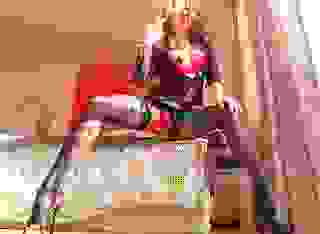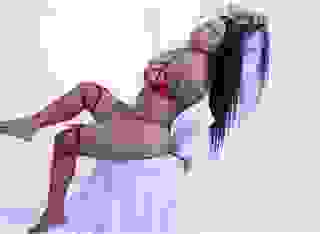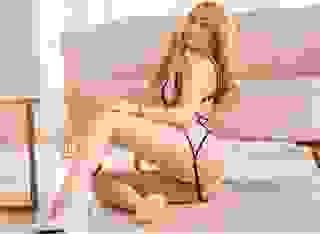Note: You can change font size, font face, and turn on dark mode by clicking the "A" icon tab in the Story Info Box.
You can temporarily switch back to a Classic Literotica® experience during our ongoing public Beta testing. Please consider leaving feedback on issues you experience or suggest improvements.
Click hereYet his mother was uncharacteristically sanguine about the idea. "Well, you certainly have nothing to lose," she said later that afternoon while on a slow walk through the old garden. "And who knows? Perhaps an appeal to tradition might be just what she needs right now. But Jere, you must understand that such an invitation must come from your hand, not mine."
"Of course," the spy said.
But then he received an invitation from Kaito-san. One last meeting between them was requested, in the hospital, and early the next morning. Auspicious timing or not, he would ask her father what he thought of the idea. Could the tea ceremony bring them back together?
And then how strange that last night had become.
Sleep without rest, quiet rain falling on reddened leaves -- everything waiting on a response from the too quiet earth. And then something deep within gave way and he was left to stand inside some kind of new silence, trapped now outside the space between the sun and the moon. What was happening to him?
He felt translucent, lifeless. Like a ghost might feel.
Like he was standing on the precipice between light and dark, between life and spirit.
A sudden movement -- caught his eye -- and he walked to the huge plate glass window that overlooked the garden, his mind searching for movement in the dark rain. What had the spies in Virginia taught him? Stand still -- become as one with the darkness and let movement come to you, use averted vision to focus on the threat -- then move decisively.
Yet this new place was without light and sound; black clouds hung so low and thick that not even the lights of the city made it to this place.
He remembered thinking how impossibly dark that night became -- until he heard the cries of two women split the night.
And while the cries still pierced the night he saw, on a low-slung branch hanging out over the garden, his first signs of movement. Pale and gray, up in a tree. Dark and so very still. Patient, like a predator. Like death.
Then a jolt of recognition. An owl, huge and white, was up there, searching eyes full of amber as they found their way to him. And in another jarring instant he realized it was Kaito-san out there on the low lying branches of the tree, and in the next instant he understood why he had heard two birds sing their song of sorrow to the waiting earth.
Chapter Fifteen
Seattle | Today
Kaito-san's swords still waited over the fireplace, their song unfinished.
Carolyn was in the kitchen, finishing the dishes. Waiting to hear the rest of the story.
He turned and stared at the short sword until he could no longer stand the sight of it, then he turned away and looked off into the darkness.
"You have some Drambuie in the cabinet," she called out. "Should I pour one glass, or two?"
"Two," he replied as he pushed the door aside and rolled out onto the deck, his eyes adjusting to the darkness beyond the night. He threw a couple of cedar logs onto the fire pit and just managed to get them going, their warmth pulling him in and holding him close, and he watched the flickering line between shadow and night playing out on the deck, a dance caught out of time -- as always with no resolution but time.
He felt a blanket and closed his eyes, tried to remember his mother protecting him from other chills, then he saw Carolyn sitting across from him in the firelight. She was such an unambiguous creature, even now, after almost five years.
He saw the glasses she had carried out and nodded. "Thanks. I may need a little liquid courage tonight."
"Is that so? Because Akari is your daughter?"
"Yes. Yes she was, once upon a time."
"Once upon a time? Divorce, you mean?"
He shook his head as he took a sip of liqueur. "No, not really. She was my daughter, you see -- right up to the moment..." But he stopped talking, looked out into the night -- until he saw her swimming his way -- and then his heart leapt with joy. 'Oh, Aki,' he sighed, 'please don't leave me again.'
"What did you say?"
But the spy simply shook away the intrusive question, kept his eye on the otter approaching the pier -- until she burst free of the water and scurried across the sanded redwood planks to his chair. And in the next instant the otter was a writhing mass of fur spinning in and out of his grasp -- until she finally settled inside the blanket bundled around his neck.
"You know," Carolyn whispered, "I don't think I'll ever get used to watching this..."
The otter slid down onto his chest and so throned she stared into the old spy's eyes, and perhaps she too was mesmerized by the flames playing within the infinite reflections she experienced again and again.
Chapter Sixteen
Hakodate | Yesterday
Kaito-san's lineage was samurai, and ancient. That his line of the family had ended up on Hokkaido was no accident of birth, either. His great-great grandfather had been given a large fiefdom near Hakodate almost two hundred years ago, the bestowal presumably a just reward for decades of faithful service to the Emperor, yet the real reason came down to brute-force politics. A years long struggle for the shogunate ended with the ascension of the older brother and the forced exile of the younger -- so the trick had been to make exile somehow feel like victory. And yet some had wondered if the Shogun had not been too generous with this huge bestowal.
Kaito-san's grandfather had set about developing deep ties with the military liaisons from both France and Britain and soon enough it seemed to many in Edo that as military power shifted away from medieval methods, real power began to shift towards those with the strongest network of alliances with western governments. While this mad rush got underway, Kaito-san's grandfather further consolidated power by developing the means to keep Russia away from the home islands, at least until he could build a strong enough navy to take out Russia's Imperial Navy, and by the time this consolidation was complete the younger brother's political dynasty was assured.
Yet something unexpected happened to the heirs of this dynasty. They traveled to Europe and then to the Americas, they went to schools in Britain and Switzerland and eventually, God forbid, in California, and they in time began to view themselves as not simply citizens of the Japanese Empire but rather more as citizens of the world. They loved Japan, especially the cooler northern islands of their home, but the more they traveled and the more they experienced other points of view the more tolerant they became, so by the time war seemed inevitable, in the late-1930s, the more a deep despair filled their hearts.
After the war ended, and after Kaito-san's father returned to Hokkaido, it did not take long for the boy to craft his return to Britain; before too many years passed Kaito-san was studying in Oxford, and not long after graduation he was working at the embassy in London. He married the woman that suited his family and they had a daughter -- Aki -- yet it was this young woman's misfortune to be raised between two cultures while never really belonging to either. She was, she always felt, on the outside -- looking in. Never British, yet rarely did she consider herself Japanese -- especially after one of her infrequent trips home -- when she began to feel like she was living at one of life's more oblique margins. Soon she pursued academic interests -- if only because it was in the less restrictive yet somehow more confining classroom that she felt a more secure sense of belonging.
Yet as a Japanese national in Britain she was frequently the target of real racial animus, though by the 1960s the worst of these influences were on the wane. When one professor at Cambridge dug into her radical background a little too disparagingly she ran home for a time, only to be hit by another wave self-recrimination when 'friends' in Hakodate characterized her as a dedicated anglophile. And then her mother passed away, reopening old wounds once again -- for her mother had never once felt any comfort when residing in London.
After her return to England she met Jeremy, and he seemed to dote of Aki's Japanese heritage -- which only confused her more. Yet it was his intention to run away to California -- to reinvent themselves, or so he claimed -- that seemed to carry the day. By that point Aki was as culturally confused as she could possibly have been, and California offered a kind of anonymity that at first appeared comfortably attractive, so she leapt at the chance to escape this first trap she had constructed for herself. Settling into suburban life in Palo Alto and going to school in Berkeley, surrounded as it was by one of the most liberal academic communities in the United States, might have freed her from this trap...at least had it not been for the secrecy surrounding her father's Huntington's diagnosis. As it was, all her walls fell at once, leaving her wounded and exposed once again -- and feeling more that a little self-destructive. Ridding herself of Jeremy was perhaps her last, most desperate act of self annihilation, yet not even he saw that for what it truly was.
With Jeremy now expelled from their lives, Aki and Akira drifted on unseen currents. Aki recognized the precariousness of their existence and sought help; her first attempts to speak to traditional psychotherapists proved uninteresting, so she latched onto the more radical approach to dealing with emotional interventions afforded by Linus Pauling's Orthomolecular Medicine Institute. As a biochemist herself she was perhaps more inclined to accept the extreme nutritional guidelines the institute prescribed, yet within months she began to feel not just better, but almost reborn.
When she heard the latest rumors that Jeremy was working on some kind of advanced biological warfare program she secured Akira and herself behind increasingly opaque layers of anonymity, and in time she grew revolted with the idea that she had ever allowed herself be seduced by such a two-faced monster...
Chapter Seventeen
Seattle | Today
The spy was sitting in his study on the telephone, listening to the oncologist's report while sitting at his desk. Akira's white counts were still perilously low and there was still no sign chemotherapy had had any measurable impact on the tumor in her brain. The spy asked questions, surprisingly informed questions that rattled the oncologist, then the spy hung up the phone and turned to look out the window. High in one of the pines along the water's edge he saw the owl, and then he saw the owl was staring -- at him.
"I know, Kaito-san," the spy said. "I know what I must do. I will not fail in my duty to you again."
He made two calls, the second to Carolyn. He asked her to pick him up later that afternoon and drive him to the airport, and though surprised she dutifully agreed. Jeremy never traveled by air these days, and he never, ever went anywhere alone.
Something, she realized, must be terribly wrong.
Chapter Eighteen
Hakodate | Yesterday
The spy followed all the prescribed rules of the tea ceremony; what to say, how to write what he needed to convey, everything he could imagine. He was, ensconced as he was inside Kaito-san's sprawling residence, surrounded by experts who all seemed most eager to help. The best calligrapher was summoned and an impossibly simple -- yet profoundly elegant -- invitation was crafted, and accompanied by his mother he delivered it to Aki. She dutifully accepted the scroll and retired to consider the entreaty.
The tea house would be prepared and made ready for the ceremony two nights hence, and Aki sent word to Jeremy that as it was her duty to attend she would of course be there. Yet almost from the moment she had first read the invitation, Aki had felt an overwhelming sense of relief. Could they finally reconcile their differences -- not just their personal differences but the lingering cultural differences that had suddenly loomed so large? Or were the differences between their worlds simply too great?
At least, she told herself, he was trying. Couldn't she meet him halfway?
Word spread throughout the vast residence of the reunion, and there was a freshening in the air, something almost like an early spring. Jeremy was fitted for a proper kimono -- deepest red with a single white cherry blossom -- and he was also directed to include Kaito-san's swords in his ensemble. Because they were his now.
His?
Surely not. He wasn't samurai, so how could this be?
And when the anointed hour came Aki waited for him. And she waited. Until word came to her, of some kind of emergency -- some kind of biochemical emergency -- in Tokyo. Terrorists were reportedly involved, thousands were allegedly at risk.
And she knew then that he had made his choice.
The gulf between them had been too great after all.
Chapter Nineteen
Seattle | Today
The spy sat on his deck overlooking Puget Sound, a small Yeti cooler by his feet and two large manila envelopes resting under his hand on the varnished redwood table. It was late afternoon and two gardeners lingered not far away, cleaning away a few weeds growing along the periphery of the rock-faced sea wall, and an arborist has just finished clearing away branches that had been closing in on the house. A large 'bird house' had been placed in the tallest pine two days ago, and he looked up and smiled at it.
The spy heard the patio door slide open and then two people walking towards the table -- yet his concentration remained fixed on the bird house in the tree. Did he see eyes in the darkness? So soon?
"Patrick?" Carolyn asked cheerfully as she walked up. "Could I get you something to drink?"
"I've put a pitcher of blackcurrant tea in the 'fridge," the spy replied. "I think there's some mango juice, as well."
"So," she sighed, "you'd like iced-tea?"
"If you don't mind. Dr. Andrews? You?"
"Tea sounds good," Akira's oncologist said as he sat next to Patrick Grey, the writer.
Carolyn returned to the house and the spy turned in his wheelchair to face the physician: "Thanks for coming. I know this was rather short notice."
The physician was in his forties, perhaps fifty years old, and he seemed very put out, almost angry. Yet the head of the medical school had, in effect, ordered him to attend this impromptu meeting.
Wheels were rolling. Wheels the spy had set in motion.
"So, Mr. Grey, I'm told you wanted to speak to me about something important?"
The spy nodded. "Important...yes. But you see, first I think I need to tell you a story."
"A story?"
"Hm-m, yes," Grey sighed -- just before he turned and looked up into the pines -- again.
Now the oncologist seemed peeved, like this whole affair was turning into the colossal waste of time he knew it would be -- but Carolyn returned with drinks as well as a platter of crab claws and remoulade, which the spy had only recently learned was a weakness the oncologist simply could not resist.
So the spy turned to his assistant and nodded. She produced a fountain pen, a fat old Mont Blanc, and put it squarely on the two envelopes before she returned to the house.
Patrick took a sip of tea and nodded. "There's something about this blend, I think. Perfection in a glass. And, oh yes, the Dungeness are from City Fish Market. Your favorites, are they not?"
Andrews turned to the spy and smiled. "So, you've done your homework. Now, care to tell me what this is all about?"
Patrick set aside his glass of tea, his hand passing over the fountain pen and for a split second he thought he felt a change in gravity...like something was pulling his hand to the envelopes. So he smiled at his own discomfort as he turned to look at Andrews again.
"Once upon a time," the old spy said -- as if out of the blue, "there were labs all around the world that had but one purpose, and that purpose was to fight the next war. The men and women working in many of these labs focused their attentions on developing new weapons..."
"Excuse me, but are you talking about CBW?" Andrews asked, referring to the usual acronym employed when discussing chemical and biological warfare.
And the old spy nodded. "I am."
"And what has this to do with me?"
Now the old spy simply held up a hand, and his meaning was clear enough. "Many of us, on the other hand, were charged with coming up with so-called antidotes to possible agents the Soviets were developing..."
"Us?" Andrews said, his eyes narrowing a bit. "Are you saying that you...?"
The old spy nodded, ignoring the interruption.
"What's your background?" Andrews barked, now more than a little perturbed by the direction this meeting was headed, but again the writer simply held up a hand, a scolding admonishment a parent might wave at an offending child.
"During the course of our duties it was often necessary to penetrate Soviet research facilities and acquire samples," the spy said, his eyes sparkling with memories both fond and fearful, "and after one such excursion we found ourselves in possession of the most evil creation imaginable. An aerosol agent, quite easily dispensed, that once inhaled led to the almost spontaneous formation of mutations within certain classes of glial cells, notably fibrous astrocytes."
Andrews was paying attention now.
"Curiously, this agent was, or is, rather persistent."
"How persistent?" the oncologist sighed.
"Oh, at first we determined it was almost flu-like. It could hang around for ten minutes with no loss of potency. When we hit a half hour we knew they had hit the proverbial jackpot, and all we had to do was determine its rate of uptake."
"Which was?"
"Ninety percent at fifteen minutes, then only a modest falloff all the way out to the thirty minute mark."
"Shit."
"Yes, just so, and I think I used that very word. Then word began to percolate that Andropov wanted to test the weapon. And then a few months later hundreds of cases of glioblastoma presented at two hospitals in central Siberia, numbers as you might suspect way beyond any reasonable standard deviation, and so we had our answer. The most potent biological weapon ever created in the laboratory had been test deployed over two penal colonies, and so of course a few weeks later Reagan announced the whole star wars thing and it was off to the races we went once again."
"Is it contagious?"
The old spy looked away, but then he nodded his head. "It behaves, all in all, rather like any other garden variety influenza particle. Absent transcription errors it happily goes about it's job with little regard for UV or other photo-chemical intervention..."
"Then why the hell hasn't there been a pandemic? I mean, the pathogen you're describing would have been beyond lethal..."
The old spy nodded. "True. Too true. I think the developers understood these implications, and thankfully they took appropriate precautions. I think they were quite terrified of the global implications. Also, you should understand that most of these researchers disappeared."
"Disappeared?"
"Dead men tell no tales, Dr. Andrews."
"So...are you saying it's just dumb luck we haven't had a major incident involving this stuff?"
"Oh, there've been a couple of incidents."
"What? Are you serious?"
But the old spy was no longer paying attention. No, he had quietly turned away and was now staring at the kimono over the fireplace, lost in the impenetrable sorrow that had chased him since that night of fast passing storms.
Chapter Twenty
Osaka | Yesterday
He walked out the gate to a waiting Land Rover; a half hour later he was airborne and headed for Osaka. Once onboard the US Air Force Gulfstream he quickly read through the briefing paper that had just been forwarded to Washington and London; a "red" terror cell now had the neurotoxin and was preparing to disperse the agent -- and word was the cell planned to release the agent either in or around a major transportation hub or onboard a crowded train. Infrared scanners and dedicated "sniffers" had already been installed in railway and subway stations in both Tokyo and Osaka; dozens more units would go active in the days ahead. These surveillance nodes could detect people with high temperatures as well as -- theoretically -- airborne viral particles, and both would be key to any successful response.








